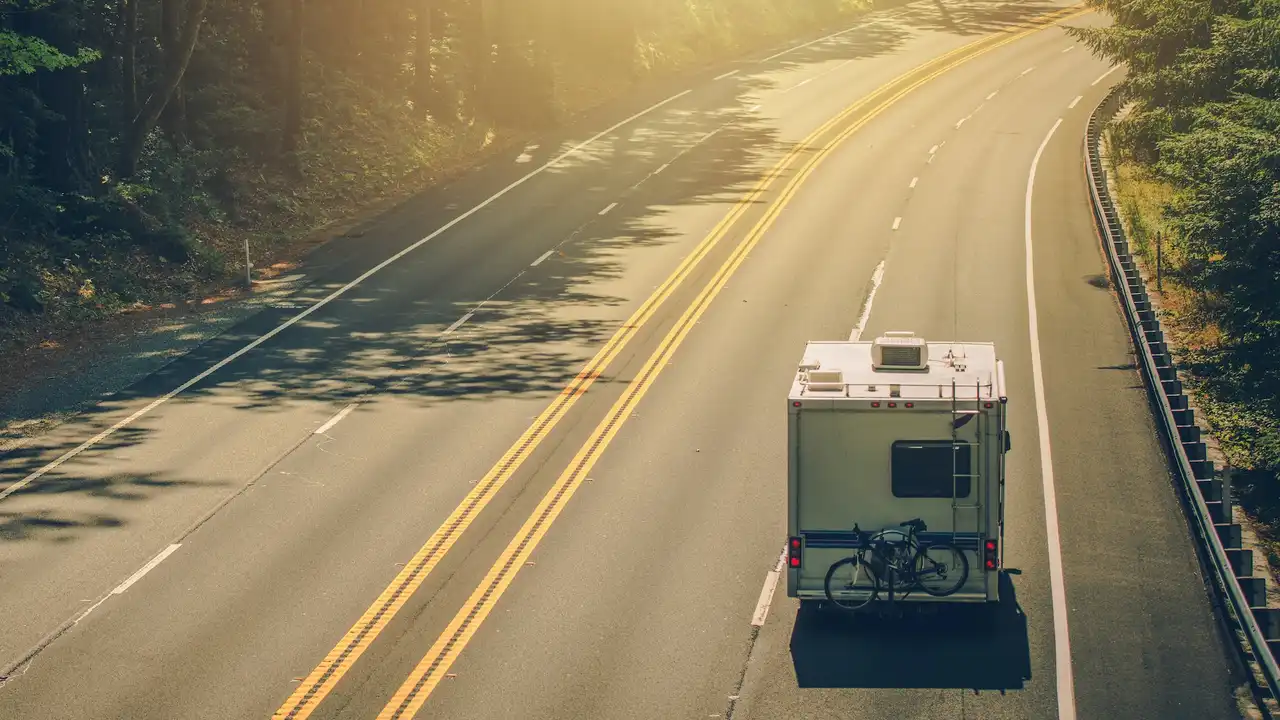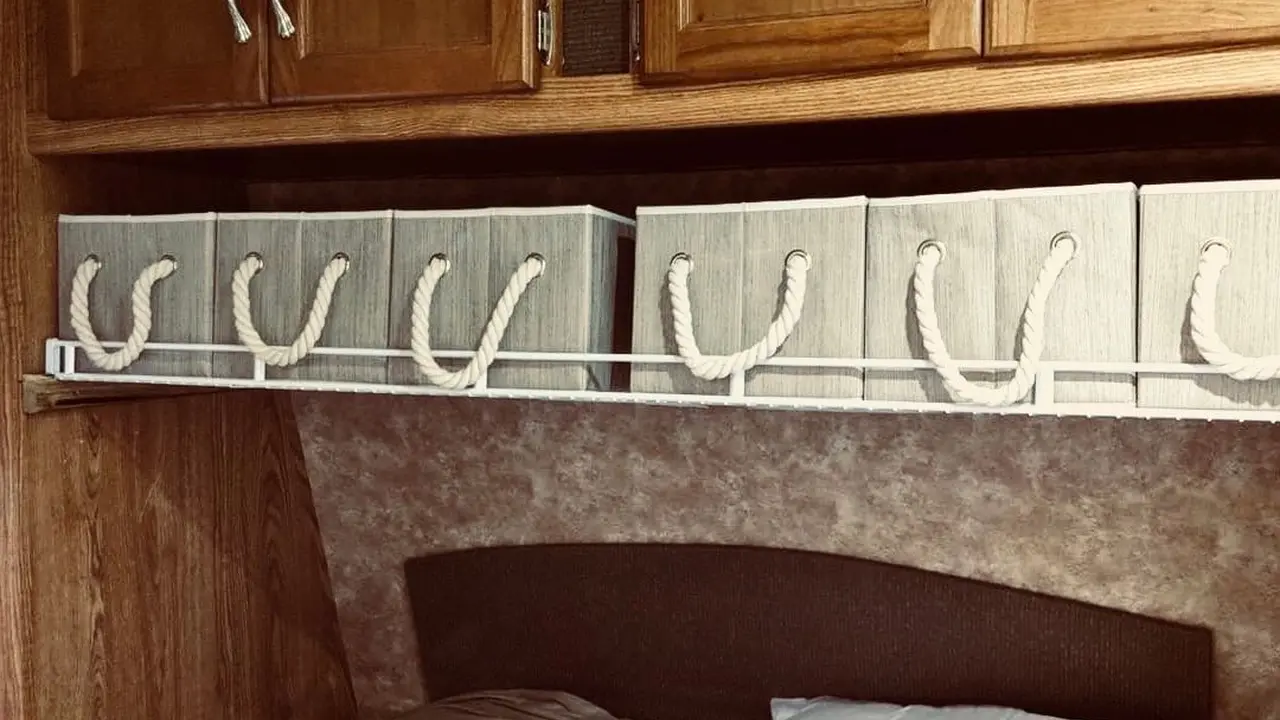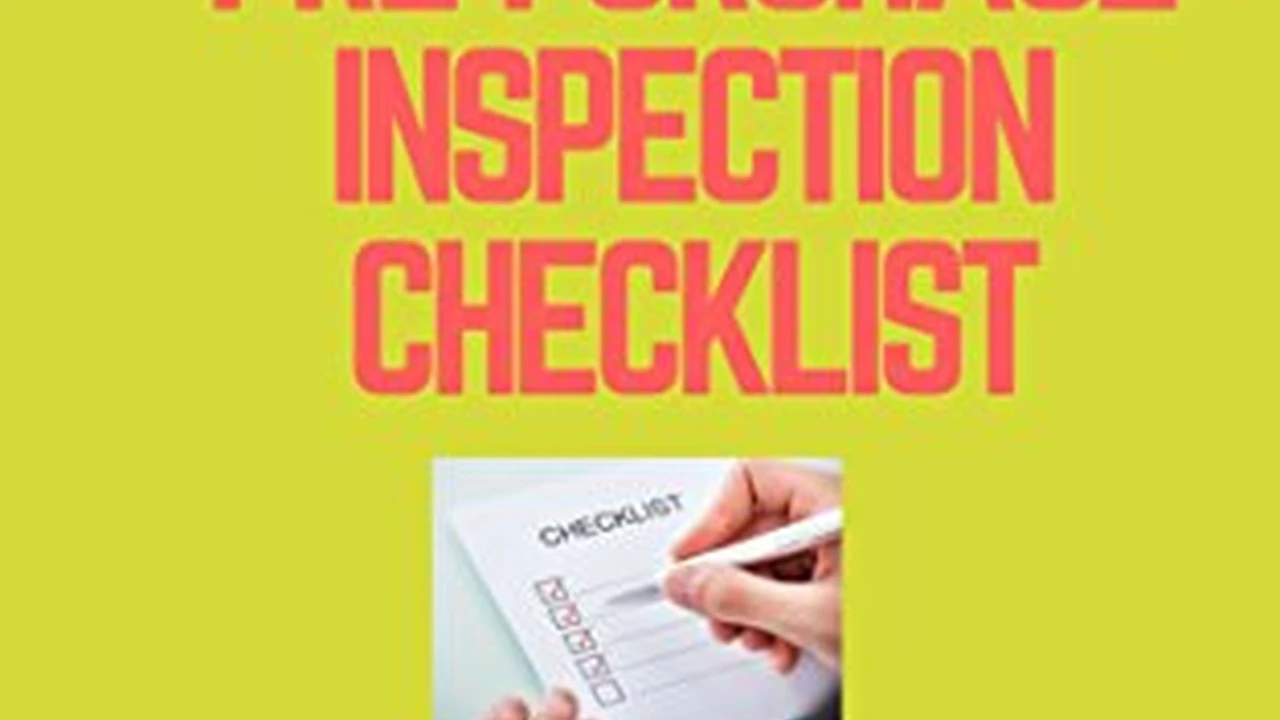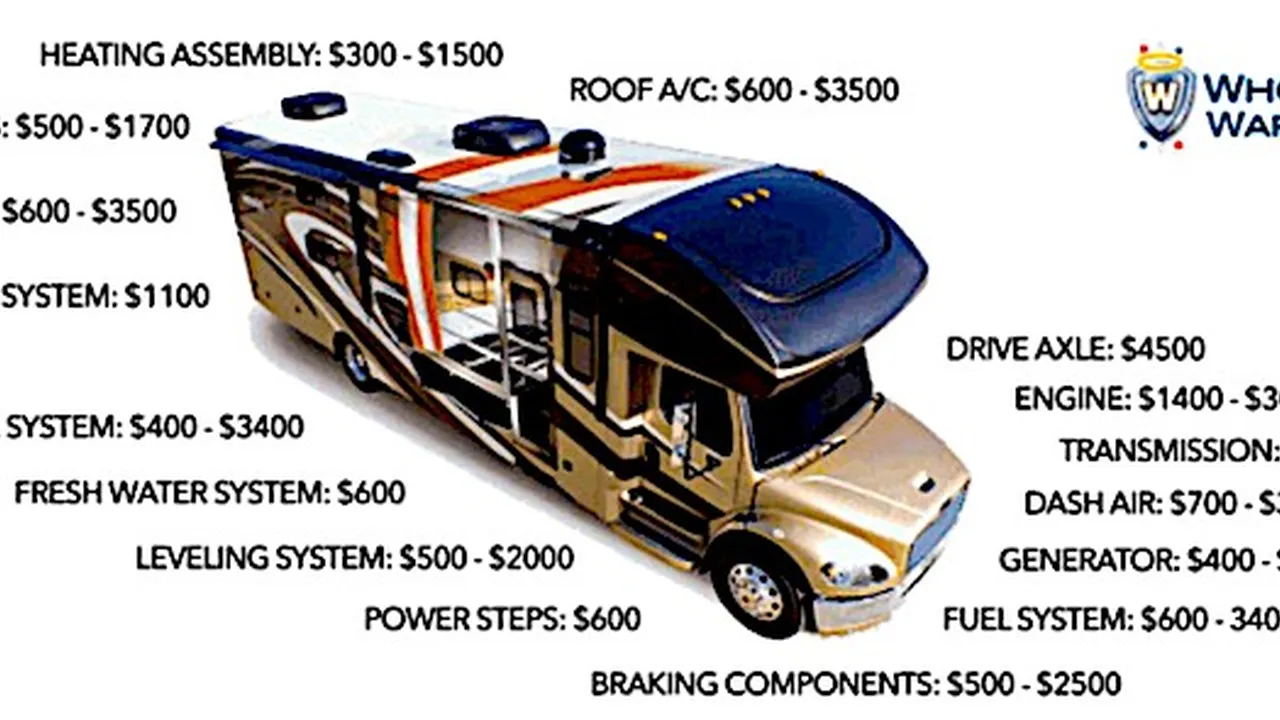RV Insurance: Protecting Your Investment

Understanding RV Insurance The Basics
So, you've got your RV. Freedom on wheels, the open road beckoning, and a whole lot of adventure waiting. But before you hit the gas, let's talk about something crucial: RV insurance. It's not exactly the most thrilling topic, but trust me, understanding it can save you a world of headache (and money) down the road.
Think of RV insurance as your safety net. It's there to protect you financially if things go wrong. Whether it's an accident, theft, or even damage from a natural disaster, having the right insurance can make all the difference.
Now, RV insurance isn't a one-size-fits-all kind of deal. There are different types of coverage available, each designed to protect you from specific risks. Let's break down some of the most common ones:
- Liability Coverage: This is the foundation of most RV insurance policies. It covers damages you cause to other people or their property if you're at fault in an accident. Think of it as protecting you from lawsuits.
- Collision Coverage: This covers damage to your RV if you collide with another vehicle or object, regardless of who's at fault. So, if you accidentally back into a tree (we've all been there!), collision coverage can help pay for the repairs.
- Comprehensive Coverage: This protects your RV from things other than collisions, such as theft, vandalism, fire, windstorms, and even hail. Basically, anything that isn't a crash.
- Uninsured/Underinsured Motorist Coverage: What happens if you're hit by someone who doesn't have insurance, or doesn't have enough to cover your damages? This coverage steps in to protect you.
- Personal Injury Protection (PIP): This covers medical expenses for you and your passengers, regardless of who's at fault in an accident. It can also cover lost wages and other related expenses.
- Roadside Assistance: This is a lifesaver (literally) if you break down on the road. It can cover things like towing, jump starts, tire changes, and even fuel delivery.
- Full Timer's Insurance: If you live in your RV full-time, this is a must-have. It provides broader coverage than standard RV insurance, similar to a homeowner's policy.
Choosing the right coverage depends on your individual needs and circumstances. Consider how often you use your RV, where you travel, and what you can afford. It's always a good idea to talk to an insurance agent who specializes in RV insurance to get personalized advice.
Types of RVs and Their Impact on Insurance Costs
Did you know that the type of RV you own significantly influences your insurance rates? It's true! Insurance companies assess risk based on factors like size, value, and the likelihood of accidents or theft. Let's explore the different types of RVs and how they impact your insurance premiums.
- Class A Motorhomes: These are the behemoths of the RV world. They're built on a commercial bus or truck chassis and offer all the comforts of home. Because of their size and high value, Class A motorhomes typically have the highest insurance premiums.
- Class B Motorhomes (Camper Vans): These are smaller and more nimble than Class A motorhomes. They're built on a van chassis and offer a more streamlined RV experience. Insurance rates for Class B motorhomes are generally lower than Class A's.
- Class C Motorhomes: These are a hybrid of Class A and Class B motorhomes. They're built on a cutaway van chassis and feature an over-cab sleeping area. Insurance rates for Class C motorhomes usually fall somewhere in between Class A and Class B.
- Travel Trailers: These are towed behind a truck or SUV. They come in a variety of sizes and floorplans. Insurance rates for travel trailers are typically lower than motorhomes because they don't have an engine.
- Fifth Wheel Trailers: These are similar to travel trailers but are designed to be towed by a pickup truck with a fifth-wheel hitch. They often offer more living space than travel trailers. Insurance rates for fifth-wheel trailers are generally comparable to travel trailers.
- Pop-Up Campers: These are lightweight and foldable trailers that are easy to tow. They're a budget-friendly option for camping. Insurance rates for pop-up campers are the lowest of all RV types.
Generally speaking, the larger and more expensive your RV, the higher your insurance premiums will be. However, other factors like your driving record, age, and location also play a role.
Factors Affecting RV Insurance Premiums Understanding the Cost Drivers
So, we know that RV type matters, but what else influences the cost of your RV insurance? A whole bunch of things, actually! Insurance companies look at a variety of factors to assess risk and determine your premium. Let's dive into some of the key cost drivers:
- RV Type and Value: As we discussed earlier, the type and value of your RV are major factors. More expensive RVs require more coverage and therefore cost more to insure.
- Driving Record: A clean driving record will result in lower premiums. Accidents and traffic violations can significantly increase your insurance costs.
- Age and Experience: Younger drivers and those with less RV driving experience typically pay higher premiums. Insurance companies see them as higher risk.
- Location: Where you live and where you travel can affect your insurance rates. Areas with high rates of theft or natural disasters will generally have higher premiums.
- Coverage Limits and Deductibles: The amount of coverage you choose and the deductible you select will impact your premium. Higher coverage limits and lower deductibles will result in higher premiums.
- Usage: How often you use your RV can also affect your rates. Full-time RVers typically pay more than those who only use their RV occasionally.
- Storage: Where you store your RV when it's not in use can also impact your insurance. Storing it in a secure location can lower your premiums.
- Safety Features: Having safety features like anti-theft devices, alarms, and backup cameras can sometimes result in discounts on your insurance.
Understanding these factors can help you make informed decisions about your RV insurance coverage and potentially lower your premiums. For example, increasing your deductible or improving your driving record can both lead to savings.
RV Insurance Coverage Options Exploring Different Policies
Now that we've covered the basics and the cost drivers, let's take a closer look at the different types of RV insurance coverage options available. Choosing the right coverage is crucial to protecting yourself financially in case of an accident or other covered event.
- Liability Coverage: This is the cornerstone of most RV insurance policies. It covers bodily injury and property damage that you cause to others in an accident. It's essential to have adequate liability coverage to protect yourself from lawsuits. Consider your net worth when choosing liability limits.
- Collision Coverage: This covers damage to your RV if you collide with another vehicle or object, regardless of fault. It's important to note that collision coverage typically has a deductible.
- Comprehensive Coverage: This protects your RV from damage caused by events other than collisions, such as theft, vandalism, fire, windstorms, hail, and even falling objects. Like collision coverage, comprehensive coverage usually has a deductible.
- Uninsured/Underinsured Motorist Coverage: This covers your medical expenses and other damages if you're hit by an uninsured or underinsured driver. It's particularly important in states with high rates of uninsured drivers.
- Personal Injury Protection (PIP): This covers medical expenses for you and your passengers, regardless of fault. It can also cover lost wages and other related expenses. PIP is required in some states and optional in others.
- Roadside Assistance: This provides coverage for towing, jump starts, tire changes, fuel delivery, and other emergency services. It's a valuable addition to any RV insurance policy. Consider the scope of the roadside assistance coverage, including the distance covered and the types of services offered.
- Full Timer's Insurance: This is designed for people who live in their RV full-time. It provides broader coverage than standard RV insurance, including personal liability coverage, property damage coverage, and loss of use coverage. It's similar to a homeowner's policy.
- Specialized Coverage: Some insurance companies offer specialized coverage options for RVs, such as coverage for awnings, satellite dishes, and other accessories. Consider whether these specialized coverages are right for you.
When choosing your RV insurance coverage, it's important to carefully consider your needs and budget. Talk to an insurance agent to get personalized advice and compare quotes from different companies.
Top RV Insurance Companies A Comparative Analysis
Choosing the right RV insurance company can be overwhelming. There are so many options out there! To help you narrow down your choices, let's take a look at some of the top RV insurance companies and compare their offerings.
- Progressive: Progressive is one of the largest and most well-known RV insurance companies. They offer a wide range of coverage options and discounts. Progressive is known for its competitive rates and excellent customer service. They also offer a diminishing deductible option, which reduces your deductible each year you go without a claim.
- Good Sam Insurance Agency: Good Sam is a popular choice among RVers. They offer specialized RV insurance policies with features like replacement cost coverage for personal belongings and campsite liability coverage. Good Sam also offers discounts to members of the Good Sam Club.
- National General: National General specializes in RV insurance and offers a variety of coverage options, including full-timer's insurance and roadside assistance. They are known for their flexible payment options and 24/7 claims service.
- Allstate: Allstate is a major insurance company that also offers RV insurance. They offer a wide range of coverage options and discounts, and their policies can be bundled with other Allstate insurance products.
- Geico: Geico is another major insurance company that offers RV insurance. They are known for their competitive rates and easy-to-use online tools.
When comparing RV insurance companies, it's important to consider factors like coverage options, premiums, discounts, customer service, and claims handling. Read reviews and compare quotes from multiple companies before making a decision.
RV Insurance Discounts Saving Money on Your Policy
Who doesn't love a good discount? Fortunately, there are several ways to save money on your RV insurance policy. Here are some common RV insurance discounts to look for:
- Multi-Policy Discount: Bundling your RV insurance with other insurance policies, such as your auto or homeowner's insurance, can often result in a significant discount.
- Good Driver Discount: Maintaining a clean driving record can earn you a good driver discount.
- Safe Driver Discount: Completing a defensive driving course or RV safety course can also qualify you for a discount.
- Association Discount: Being a member of an RV club or association, such as the Good Sam Club or the FMCA, can often result in a discount.
- Anti-Theft Discount: Installing anti-theft devices, such as alarms or GPS tracking systems, can earn you a discount.
- Storage Discount: Storing your RV in a secure location can also qualify you for a discount.
- Paid-in-Full Discount: Paying your insurance premium in full upfront can sometimes result in a discount.
- Loyalty Discount: Staying with the same insurance company for a long period of time can sometimes earn you a loyalty discount.
Be sure to ask your insurance agent about all available discounts when you're shopping for RV insurance. You might be surprised at how much you can save!
RV Insurance Claims Process What to Do After an Accident
Unfortunately, accidents happen. If you're involved in an RV accident, it's important to know what to do. Here's a step-by-step guide to the RV insurance claims process:
- Ensure Safety: Your first priority is to ensure the safety of yourself and others. Check for injuries and call for medical assistance if needed.
- Report the Accident: Call the police and report the accident. Obtain a police report.
- Exchange Information: Exchange insurance information with the other driver(s) involved in the accident. Get their name, address, phone number, insurance company, and policy number.
- Document the Scene: Take photos of the damage to your RV and the other vehicle(s) involved. Also, take photos of the accident scene.
- Notify Your Insurance Company: Contact your insurance company as soon as possible to report the accident and file a claim.
- Cooperate with the Insurance Company: Cooperate with the insurance company's investigation of the accident. Provide them with all the information they need, including the police report, photos, and witness statements.
- Get an Estimate: Get an estimate for the repairs to your RV from a reputable repair shop. Provide the estimate to your insurance company.
- Negotiate the Settlement: Negotiate a fair settlement with the insurance company. If you're not happy with the initial settlement offer, don't be afraid to negotiate.
- Get the Repairs Done: Once you've reached a settlement agreement, get the repairs done to your RV. Keep all receipts for the repairs.
It's important to be patient and persistent throughout the claims process. If you're having trouble with the insurance company, consider consulting with an attorney.
RV Insurance for Full Time RVers Understanding Unique Needs
Living in your RV full-time presents unique insurance needs compared to occasional RV use. Full-timers require coverage that addresses their lifestyle and potential risks associated with living on the road. Let's delve into what full-time RV insurance entails.
Standard RV insurance policies often fall short for full-time RVers. They typically don't provide adequate coverage for personal liability, property damage, or loss of use. Full-timer's insurance, on the other hand, is designed to bridge these gaps and provide comprehensive protection.
Here are some key differences between standard RV insurance and full-timer's insurance:
- Personal Liability Coverage: Full-timer's insurance provides broader personal liability coverage, similar to a homeowner's policy. This protects you if someone is injured on your RV property or if you accidentally damage someone else's property.
- Property Damage Coverage: Full-timer's insurance covers your personal belongings inside your RV, similar to a renter's or homeowner's policy. This includes coverage for furniture, electronics, clothing, and other personal items.
- Loss of Use Coverage: Full-timer's insurance provides coverage for living expenses if your RV is damaged and you're unable to live in it. This can help cover the cost of hotels, meals, and other expenses while your RV is being repaired.
- Medical Payments Coverage: Full-timer's insurance can provide medical payments coverage for guests injured on your RV property, regardless of fault.
- Mail Forwarding Coverage: Some full-timer's insurance policies offer coverage for mail forwarding services, which can be essential for full-time RVers who don't have a permanent address.
If you're a full-time RVer, it's crucial to obtain full-timer's insurance to adequately protect yourself and your belongings. Talk to an insurance agent who specializes in RV insurance to get personalized advice and compare quotes from different companies.
RV Insurance for Mexico and Canada Navigating International Travel
Planning an RV adventure across borders? Traveling to Mexico or Canada requires understanding the specific insurance requirements for each country. Your U.S. RV insurance policy may not provide adequate coverage in these destinations.
Mexico RV Insurance: U.S. RV insurance policies typically do not extend coverage into Mexico. You will need to purchase a separate Mexico RV insurance policy to legally operate your RV in Mexico. Mexico RV insurance provides liability coverage, which is mandatory, as well as optional coverage for collision, comprehensive, and theft.
When purchasing Mexico RV insurance, be sure to choose a reputable provider that is licensed and authorized to sell insurance in Mexico. Compare quotes from different companies to find the best coverage and price.
Canada RV Insurance: Most U.S. RV insurance policies extend coverage into Canada, but it's essential to verify this with your insurance company before traveling. Ensure that your policy provides adequate liability coverage to meet Canadian requirements. You may also want to consider purchasing additional coverage, such as trip interruption insurance or emergency medical insurance.
Before traveling to Mexico or Canada, gather all necessary documents, including your RV insurance policy, registration, driver's license, and passport. Be aware of local traffic laws and regulations, and drive safely.
RV Insurance for Storage Protecting Your Investment While Parked
Even when your RV is parked in storage, it's still vulnerable to potential risks such as theft, vandalism, fire, and weather damage. Maintaining RV insurance during storage is crucial to protect your investment.
While you may be tempted to cancel your RV insurance during storage to save money, this can be a costly mistake. Without insurance, you'll be responsible for covering any damages that occur while your RV is in storage.
Consider maintaining comprehensive coverage on your RV insurance policy while it's in storage. Comprehensive coverage protects your RV from damage caused by events other than collisions, such as theft, vandalism, fire, windstorms, hail, and falling objects.
You may be able to reduce your RV insurance premiums while it's in storage by suspending collision coverage. Collision coverage only protects your RV if it collides with another vehicle or object, so it's not necessary while your RV is parked.
When choosing an RV storage facility, select one that is secure and well-maintained. Look for features such as gated access, security cameras, and on-site security personnel. This can help deter theft and vandalism and potentially lower your insurance premiums.
RV Insurance for Different States Navigating Varying Requirements
RV insurance requirements vary from state to state. It's essential to understand the specific requirements in your state of residence and in any states you plan to travel through.
Most states require RV owners to carry a minimum amount of liability insurance. Liability insurance covers bodily injury and property damage that you cause to others in an accident. The minimum liability limits vary from state to state, so it's important to ensure that your policy meets the requirements in your state.
Some states also require RV owners to carry uninsured/underinsured motorist coverage. This coverage protects you if you're hit by an uninsured or underinsured driver.
In addition to state-mandated requirements, you may also want to consider purchasing additional coverage, such as collision and comprehensive coverage, to protect your RV from damage.
When purchasing RV insurance, be sure to work with an insurance agent who is familiar with the requirements in your state. They can help you choose the right coverage to meet your needs and comply with state laws.
RV Insurance for Older RVs Finding Affordable Coverage
Insuring an older RV can sometimes be challenging. Some insurance companies may be hesitant to provide coverage for older RVs, or they may charge higher premiums. However, there are still ways to find affordable RV insurance for older models.
One option is to consider a stated value policy. A stated value policy allows you to declare the value of your RV, and the insurance company will pay up to that amount in the event of a total loss. This can be a good option for older RVs that have depreciated in value.
Another option is to shop around and compare quotes from different insurance companies. Some companies specialize in insuring older RVs and may offer more competitive rates.
You may also be able to lower your RV insurance premiums by increasing your deductible or reducing your coverage limits. However, be sure to carefully consider the risks before making these changes.
When insuring an older RV, it's important to maintain it in good condition. This can help demonstrate to the insurance company that your RV is well-maintained and less likely to experience problems.
RV Insurance for Part Time RVers Balancing Coverage and Cost
If you only use your RV occasionally, you may be looking for ways to balance coverage and cost. Part-time RVers have different insurance needs than full-time RVers, and it's important to choose a policy that meets your specific requirements.
Consider your usage patterns when choosing RV insurance. If you only use your RV for a few weeks or months each year, you may be able to reduce your coverage limits or increase your deductible to save money.
However, it's important to ensure that you have adequate liability coverage to protect yourself in case of an accident. Liability coverage covers bodily injury and property damage that you cause to others.
You may also want to consider purchasing comprehensive coverage to protect your RV from damage caused by events other than collisions, such as theft, vandalism, fire, and weather damage.
When comparing RV insurance quotes, be sure to consider the coverage options, premiums, and deductibles. Choose a policy that provides the right balance of coverage and cost for your needs.
RV Insurance and Personal Belongings Protecting Your Valuables
Your RV is not just a vehicle; it's also your home on wheels. It contains valuable personal belongings that you want to protect. RV insurance can provide coverage for your personal belongings in the event of theft, damage, or loss.
Standard RV insurance policies typically provide limited coverage for personal belongings. Full-timer's insurance, on the other hand, provides more comprehensive coverage, similar to a homeowner's or renter's policy.
When purchasing RV insurance, consider the value of your personal belongings and choose a policy that provides adequate coverage. You may also want to consider purchasing additional coverage for valuable items such as jewelry, electronics, and collectibles.
Keep an inventory of your personal belongings, including photos and receipts. This will make it easier to file a claim in the event of a loss.
Consider taking steps to protect your personal belongings from theft, such as installing a security system and storing valuable items in a safe.
RV Insurance and Natural Disasters Preparing for the Unexpected
RVs are vulnerable to damage from natural disasters such as hurricanes, tornadoes, floods, and wildfires. RV insurance can provide coverage for damage caused by these events.
Comprehensive coverage protects your RV from damage caused by natural disasters. This includes coverage for damage caused by wind, hail, fire, flood, and other covered perils.
When purchasing RV insurance, consider the potential risks in your area and choose a policy that provides adequate coverage for natural disasters.
Take steps to prepare your RV for natural disasters, such as securing it in a safe location and removing valuables.
Be aware of weather alerts and warnings, and take appropriate action to protect yourself and your RV.
RV Insurance Claim Denials Understanding Your Rights
Unfortunately, RV insurance claims can sometimes be denied. If your claim is denied, it's important to understand your rights and options.
First, review your insurance policy carefully to understand the reasons for the denial. The insurance company is required to provide a written explanation of the denial.
If you believe that the denial is unfair or unjustified, you have the right to appeal the decision. Follow the insurance company's appeal process.
You may also want to consider consulting with an attorney or public adjuster. An attorney can help you understand your legal rights and options, while a public adjuster can help you negotiate with the insurance company.
Keep detailed records of all communication with the insurance company, including dates, times, and names of individuals you spoke with.
The Future of RV Insurance Emerging Trends and Technologies
The RV insurance industry is constantly evolving, with new trends and technologies emerging all the time. Let's take a look at some of the key trends shaping the future of RV insurance.
- Telematics: Telematics devices can track your driving habits and provide data to insurance companies. This data can be used to assess risk and potentially offer discounts to safe drivers. Progressive's Snapshot program is an example of telematics in action.
- Usage-Based Insurance: Usage-based insurance (UBI) allows you to pay for insurance based on how much you drive. This can be a good option for part-time RVers who don't drive their RV very often.
- Artificial Intelligence: AI is being used to automate various aspects of the insurance process, such as claims processing and risk assessment.
- Cybersecurity: As RVs become more connected, cybersecurity risks are increasing. Insurance companies are developing policies to protect RVers from cyber threats.
- Sustainability: There is a growing focus on sustainability in the RV industry. Insurance companies are developing policies that encourage eco-friendly practices.
Staying informed about these emerging trends and technologies can help you make informed decisions about your RV insurance coverage.
Recommended RV Insurance Products and Their Uses
Alright, let's get down to brass tacks. You've absorbed a ton of information about RV insurance. Now, let's talk about some specific products and how they might fit your needs. Remember, I'm not a financial advisor, so always do your own research and talk to a qualified insurance professional before making any decisions.
Progressive RV Insurance
Use Case: Great all-around option for most RVers, especially those who appreciate online tools and competitive rates.
Features:
- Diminishing Deductible: Your deductible decreases each year you go without a claim. This is a fantastic perk that rewards safe driving.
- Total Loss Replacement: If your RV is totaled, Progressive will pay the full original purchase price (minus depreciation), which can be a huge benefit, especially for newer RVs.
- Roadside Assistance: Comprehensive roadside assistance coverage is available, including towing, jump starts, tire changes, and fuel delivery.
Pricing: Varies based on RV type, driving record, and coverage selections. Generally considered competitive, especially with discounts.
Good Sam RV Insurance
Use Case: Ideal for members of the Good Sam Club who want specialized RV coverage and benefits.
Features:
- Replacement Cost Coverage for Personal Belongings: If your personal belongings are stolen or damaged, Good Sam will pay to replace them with new items, regardless of depreciation.
- Campsite Liability Coverage: Protects you from liability if someone is injured on your campsite.
- Disappearing Deductible: Similar to Progressive, Good Sam offers a disappearing deductible, rewarding safe driving.
Pricing: Competitive, especially with the Good Sam Club discount. Worth comparing to other options.
National General RV Insurance
Use Case: A good choice for full-time RVers and those seeking flexible payment options.
Features:
- Full-Timer's Package: Designed specifically for full-time RVers, offering comprehensive coverage similar to a homeowner's policy.
- Flexible Payment Options: Offers a variety of payment plans to fit your budget.
- 24/7 Claims Service: Provides around-the-clock claims support.
Pricing: Can be slightly higher than other options, but the comprehensive full-timer's package may be worth the extra cost.
Comparison Table
| Company | Best For | Key Features | Pricing |
|---|---|---|---|
| Progressive | All-around RVers | Diminishing Deductible, Total Loss Replacement | Competitive |
| Good Sam | Good Sam Club Members | Replacement Cost for Belongings, Campsite Liability | Competitive (with discount) |
| National General | Full-Time RVers | Full-Timer's Package, Flexible Payments | Potentially Higher |
Disclaimer: Prices and features are subject to change. Contact each company directly for the most up-to-date information.
RV Insurance FAQs Answering Your Burning Questions
Still have some questions swirling around in your head? Let's tackle some frequently asked questions about RV insurance.
Q: Is RV insurance required?
A: Yes, in most states, you're required to carry at least liability insurance on your RV if it's driven on public roads. The specific requirements vary by state, so check with your local DMV.
Q: How much RV insurance do I need?
A: The amount of RV insurance you need depends on your individual circumstances, including the value of your RV, your driving record, and your financial situation. It's generally recommended to carry enough liability coverage to protect your assets in case you're at fault in an accident.
Q: What's the difference between RV insurance and auto insurance?
A: RV insurance is specifically designed to cover the unique risks associated with RVs, while auto insurance is designed for passenger vehicles. RV insurance policies typically offer broader coverage than auto insurance policies, including coverage for personal belongings and living expenses.
Q: Can I get RV insurance for a converted van?
A: Yes, you can get RV insurance for a converted van, but it may be more challenging than insuring a factory-built RV. You may need to provide documentation about the conversion and modifications to the insurance company.
Q: How can I lower my RV insurance premiums?
A: There are several ways to lower your RV insurance premiums, including bundling your RV insurance with other policies, maintaining a clean driving record, increasing your deductible, and taking advantage of discounts.
Q: What should I do if I'm involved in an RV accident?
A: If you're involved in an RV accident, ensure everyone's safety first. Then, report the accident to the police, exchange information with the other driver(s), document the scene, and notify your insurance company as soon as possible.
Q: Is it worth getting roadside assistance with my RV insurance?
A: Absolutely! RVs are complex machines, and breakdowns can happen. Roadside assistance can be a lifesaver, providing towing, jump starts, tire changes, and other emergency services.
:max_bytes(150000):strip_icc()/277019-baked-pork-chops-with-cream-of-mushroom-soup-DDMFS-beauty-4x3-BG-7505-5762b731cf30447d9cbbbbbf387beafa.jpg)






